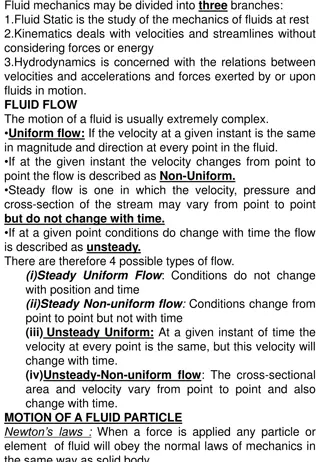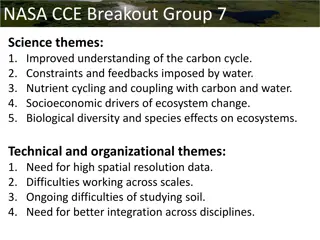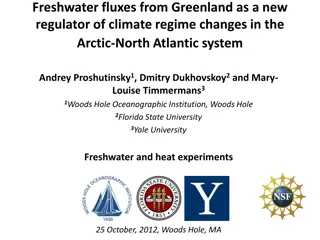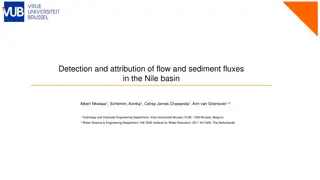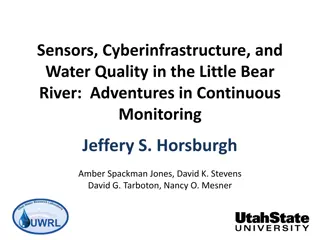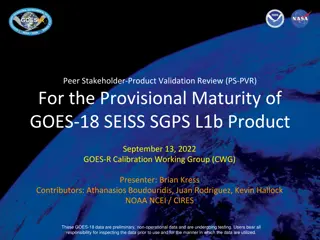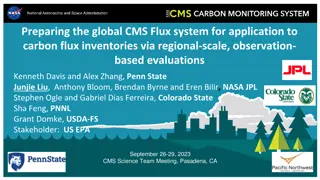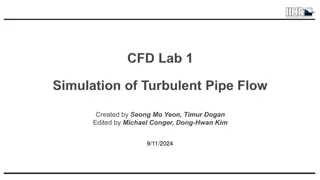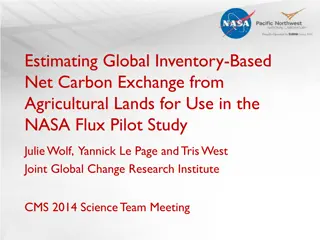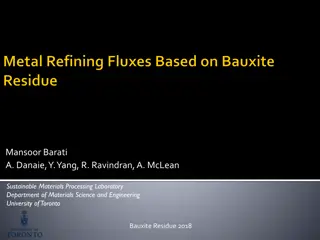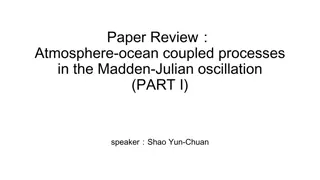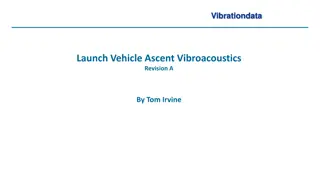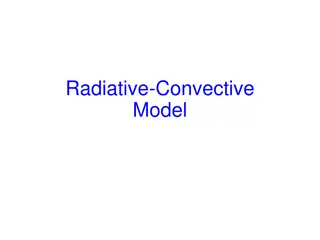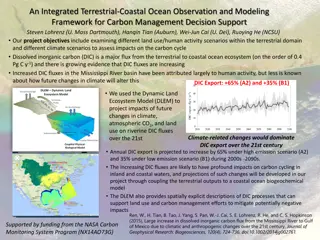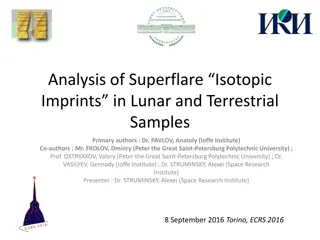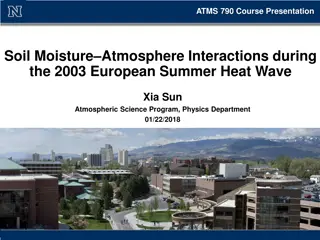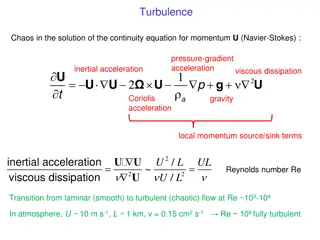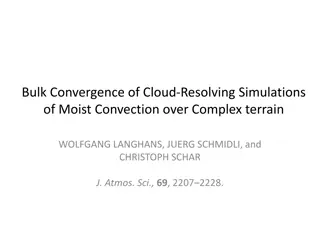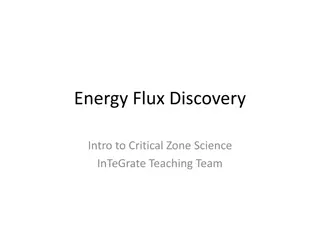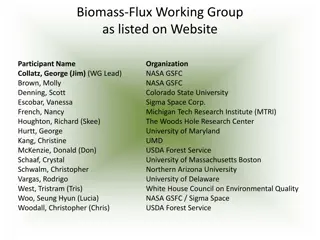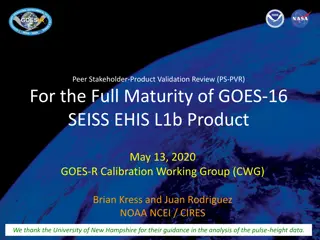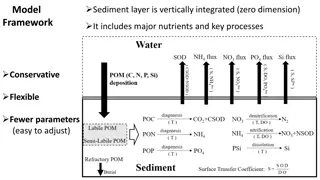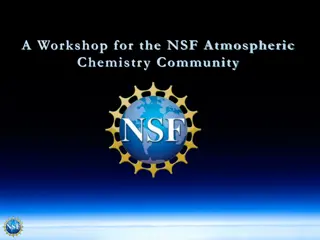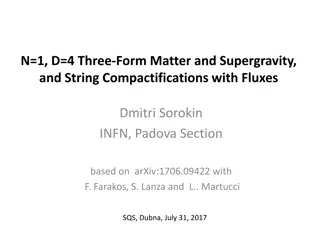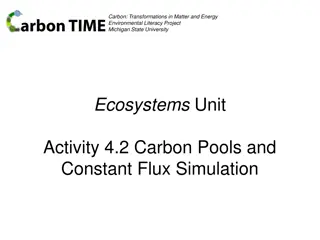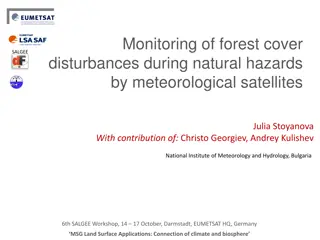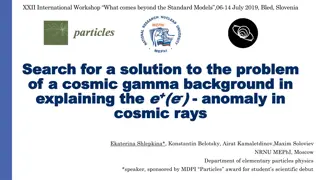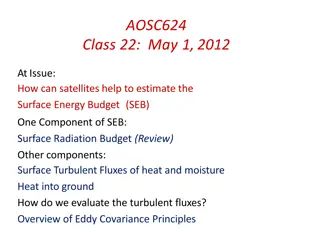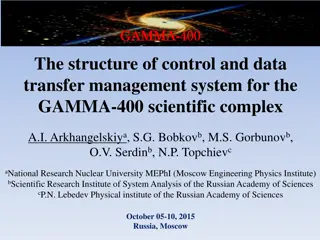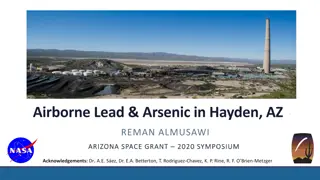Alarming Surge In Private Equity-Backed Deal Failures
In a turbulent landscape, private equity-backed deals are grappling with alarming termination rates as regulatory headwinds take toll. FY'23 witnessed a staggering $28.16 billion in terminated PE-backed deals, constituting 19% of the total terminated deal value.
11 views • 7 slides
The Importance of Submission and Respect in a Changing World
Exploring biblical verses from Ephesians and 2 Timothy on the virtues of submission and respect towards parents in a society facing discord and disrespect. Reflect on the significance of honoring parents, the challenges of modern times, and the promise of blessing that comes with respect. Emphasizin
0 views • 11 slides
For Our Time of Crisis: Sermon Insights for LifeGate - July 2nd, 2023
Explore essential teachings from Matthew 11, emphasizing commitment to Christ in turbulent times. Reflect on critical words of Jesus, the challenge of maintaining faith amidst adversity, and the importance of spiritual growth. Stay vigilant to preserve your faith as the world undergoes trials and se
1 views • 27 slides
Overview of Fluid Mechanics: Branches, Flow Types, and Equations
Fluid mechanics is subdivided into three branches: Fluid Static, Kinematics, and Hydrodynamics. The study of fluid flow includes different types such as uniform, non-uniform, steady, and unsteady flow. The motion of fluid particles obeys Newton's laws, and the conservation of mass and energy plays a
1 views • 4 slides
Understanding Boundary Layers in Fluid Dynamics
A boundary layer forms when a fluid flows over a solid surface, with viscous forces present close to the surface. It can be laminar or turbulent, determined by the Reynolds number. Flow separation occurs in adverse pressure gradients, affecting lift and causing drag. Efforts to delay separation incl
1 views • 19 slides
Welding Materials Market worth $17
The report \"Welding Materials Market by Type (Electrodes & Filler Materials, Fluxes & Wires, Gases), Technology (Arc, Resistance, Oxy-Fuel Welding), End-use Industry (Transportation, Building & Construction, Heavy Industries), & Region - Global Fore
1 views • 3 slides
NASA CCE Breakout Group 7 Research Themes
NASA's Carbon Cycle and Ecosystems Breakout Group 7 focuses on key science and technical themes including understanding the carbon cycle, water constraints, nutrient cycling, socioeconomic drivers, biodiversity effects, data resolution challenges, interdisciplinary integration, and more. Researchers
0 views • 6 slides
Freshwater Fluxes from Greenland and Climate Regime Changes in the Arctic-North Atlantic System
Freshwater fluxes from Greenland are identified as a new regulator of climate regime changes in the Arctic-North Atlantic system. The Arctic Ocean Oscillation Index reveals two circulation regimes with alternating patterns. Correlations between the Arctic Ocean Oscillation and various environmental
1 views • 32 slides
Detection and Attribution of Flow and Sediment Fluxes in the Nile Basin
This study aims to detect and attribute climate change impacts on flow and sediment loads in the Nile basin using climate data and hydrological models. The research focuses on historical data and involves evaluating models, completing paper writing, and finishing the detection and attribution analys
0 views • 4 slides
Continuous Monitoring of Water Quality in Little Bear River
Explore the implementation of sensors, cyberinfrastructure, and continuous monitoring networks in the Little Bear River to improve water quality predictions. Discover the challenges and solutions related to designing monitoring networks, integrating optical measurements with water quality data, and
1 views • 38 slides
GOES-18 SEISS Solar Galactic Proton Sensor Product Validation Review
GOES-18 SEISS SGPS L1b product is undergoing provisional maturity testing by the GOES-R Calibration Working Group. The review includes evaluation of product quality, supporting instruments, health tests, and path to full validation. Users are responsible for inspecting and utilizing the preliminary
0 views • 39 slides
Analysis of GOES Solar Flare Peak Fluxes Frequency Distribution (1994-2005)
This presentation explores the frequency distribution of GOES solar flare peak fluxes from 1994 to 2005. It discusses the background on GOES satellites, event detection methods, data processing techniques, and the effects of time and quantization filters on the data. The analysis includes examples o
1 views • 20 slides
Application of CMS-Flux System for Carbon Flux Inventories Evaluation
Preparation for the global CMS Flux system integration with US forest and agricultural carbon inventory data to quantify uncertainties and enhance inventory-relevant flux estimates. The project aims to evaluate the utility of CMS-Flux-NA system for top-down assessment of US agricultural and forest C
2 views • 21 slides
Simulation of Turbulent Pipe Flow Analysis in Fluid Mechanics Lab
This content describes a lab session in Mechanics of Fluids and Transport Processes, focusing on simulating turbulent pipe flow using Computational Fluid Dynamics (CFD). It covers topics such as Reynolds number, turbulent flow features, turbulent models, and the simulation procedure. Students will a
0 views • 11 slides
Estimating Global Inventory-Based Net Carbon Exchange from Agricultural Lands
This study aims to quantify global agricultural carbon fluxes by considering above- and belowground crop biomass, crop residues, livestock interactions, and human food intake. The methods involve combining inventory data and spatially resolved estimates of Net Carbon Exchange (NCE). Satellite-based
0 views • 16 slides
Sustainable Processing of Bauxite Residue for Environmental Benefits
Sustainable Materials Processing Laboratory at the University of Toronto is focusing on innovative ways to neutralize acidic soil, treat mining wastes, and recover metals using bauxite residue. The research also delves into the properties of hot metal and steel, emphasizing steelmaking processes for
0 views • 22 slides
Understanding Atmosphere-Ocean Coupling in Madden-Julian Oscillation
Atmosphere-ocean coupled processes in the Madden-Julian Oscillation (MJO) play a crucial role in intraseasonal oscillations. This paper review by Shao Yun-Chuan explores how the ocean's Sea Surface Temperature (SST) influences surface fluxes, MJO convection, and energy balance dynamics. It delves in
0 views • 17 slides
Aeroacoustic Analysis of Launch Vehicle Ascent Dynamics
Investigate the vibroacoustics of launch vehicle ascent, focusing on the formation of turbulent boundary layers, aerodynamic excitation sources, and dynamic pressure coefficients. Learn about the transition to turbulent flow, shockwave formation, and the analysis steps involved in determining vibrat
0 views • 30 slides
Detailed Overview of a Radiative-Convective Model for Weather Prediction
This detailed overview explores the components of a Radiative-Convective Model, covering convection, radiation transfer, cloud-radiation interaction, and surface fluxes. The model incorporates algorithms and parameterizations to simulate various cloud types, radiative transfer processes, and surface
1 views • 9 slides
Understanding Raw Materials in Ceramic Production
Raw materials play a crucial role in ceramic production, with three main groups identified - plastic materials like clay, non-plastic or leading mixtures such as silica, and fluxes/mineralizers like feldspar. These materials undergo various transformations during the manufacturing process, contribut
0 views • 29 slides
Integrated Terrestrial-Coastal Ocean Framework for Carbon Management
An advanced framework integrating terrestrial and coastal ocean observations and modeling is developed to support carbon management decisions. The study focuses on assessing the impacts of land use, human activities, and climate scenarios on the carbon cycle, particularly dissolved inorganic carbon
0 views • 5 slides
Analysis of Superflare Isotopic Imprints in Lunar and Terrestrial Samples
Researchers investigate isotopic imprints in lunar and terrestrial samples to understand extreme solar events and their impact on atmospheric radiocarbon concentrations. Using 10Be and 36Cl data, they analyze the solar proton spectra and energy fluxes associated with these events, shedding light on
0 views • 13 slides
Soil Moisture-Atmosphere Interactions in the 2003 European Summer Heat Wave
This presentation discusses the significant impacts of soil moisture-atmosphere interactions during the 2003 European Summer Heat Wave, highlighting the abnormally hot weather, pavement buckling, and high-pressure systems that contributed to the extreme conditions. The images and diagrams illustrate
0 views • 27 slides
Understanding Turbulence in Fluid Dynamics: A Comprehensive Exploration
Exploring the complexities of turbulence in fluid dynamics, from the Navier-Stokes equations to subgrid transport and turbulent diffusion. Insights into the transition from laminar to turbulent flow, subgrid scale importance, and treatment of small-scale eddies are discussed. The impact of turbulenc
0 views • 9 slides
Analysis of Cloud-Resolving Simulations Over Complex Terrain
Examining cloud-resolving simulations of moist convection over complex terrain using large eddy simulation (LES) and deep convective fluxes. The study includes characteristics of the simulations, numerical convergence, and turbulent diffusion. Results reveal insights into the behavior of convective
0 views • 20 slides
Exploring Energy Flux in Critical Zone Science
Dive into the world of energy flux discovery in the critical zone science, understanding common water and energy fluxes, cloud formations, and tracking monthly Ameriflux energy fluxes in various forest environments. Engage with visual representations and data models to grasp the intricate balance of
0 views • 5 slides
Biomass-Flux Working Group Overview
The Biomass-Flux Working Group, a collaboration involving various organizations like NASA and universities, aims to integrate land-atmosphere carbon fluxes and biomass changes to enhance estimations and understanding. By identifying overlapping projects, encouraging cross-comparisons, and reconcilin
0 views • 10 slides
Review of GOES-16 SEISS EHIS L1b Product Maturity
This review focuses on the Peer Stakeholder-Product Validation for the full maturity assessment of the GOES-16 SEISS EHIS L1b Product. It includes an overview of the EHIS, anomalies, resolution status, and recommendations. The Energetic Heavy Ion Sensor aims to measure solar energetic particles and
0 views • 50 slides
Integrated Sediment Model for Nutrient Processes in Chesapeake Bay
This sediment model framework integrates major nutrients and key processes in a vertically integrated, zero-dimensional scheme. It is characterized by its conservative and flexible nature, with fewer parameters making adjustments easy. The model includes a scheme for POM remineralization and finds a
0 views • 8 slides
Turbulent Times: The Revival of Learning (1400-1550) through Political Upheaval
The period from 1400 to 1550 saw significant political and literary changes, with upheavals in monarchies such as Henry V, Henry VI, Richard III, and Henry VIII. Henry V's quest for power led to the Battle of Agincourt in 1415 and the Treaty of Troyes. His death in 1422 marked the end of a turbulent
0 views • 6 slides
Joint Meeting Summary: OCB US CLIVAR Summit 2011
A joint meeting was held in 2011 between OCB and US CLIVAR to explore common science issues and identify collaboration opportunities. The Ocean Carbon and Biogeochemistry Program, created in 2006 by NSF, NASA, and NOAA, focuses on understanding the ocean's role in the global carbon cycle. The meetin
0 views • 9 slides
Adapting HR Consultancy for Turbulent Times - CIPD Webinar
This CIPD webinar discusses how independent HR consultants can adapt to turbulent times, featuring insights from experts Kathleen McAdams and Ian Pettigrew. The session covers resources for mental health support, self-employment in HR, and a Q&A with the speakers.
0 views • 9 slides
NSF Atmospheric Chemistry Program Overview
The NSF Atmospheric Chemistry Program aims to characterize the chemical composition of the atmosphere, understand chemical processes, quantify fluxes of chemical substances, study natural and anthropogenic causes of variability, and assess impacts on climate. The program supports research through pe
0 views • 6 slides
Three-Form Matter and Supergravity in String Compactifications
Investigating the role of 3-form gauge fields in N=1, D=4 supergravity and matter supermultiplets, exploring their connection to cosmological constant, neutralization mechanisms, and susy breaking. The duality between 3-form fields and cosmological constant is discussed, along with a novel supersymm
0 views • 13 slides
Carbon Transformations in Matter and Energy: A Simulation Study
Explore the dynamics of carbon pools and fluxes in an interactive simulation. Investigate how changes in initial settings affect pool sizes and observe the impact of varying fluxes on carbon transformations over time. Gain insights into net flux, patterns, and rules governing pool size changes in ec
0 views • 11 slides
Monitoring Forest Cover Disturbances During Natural Hazards by Meteorological Satellites
Ecosystem functioning relies on energy, water, and carbon fluxes regulated by vegetation and soil properties. This study focuses on monitoring forest cover disturbances before, during, and after natural hazards using meteorological satellites. It involves analyzing land surface temperature, evapotra
0 views • 37 slides
Solving Cosmic Gamma Background Anomaly: Ekaterina Shlepkina's Research Insights
Explore the quest to find a solution for the cosmic gamma background anomaly in cosmic rays through Ekaterina Shlepkina's research presented at the XXII International Workshop. Learn about the investigations into cosmic rays fluxes, antiparticle studies, and possible interaction types of Dark Matter
1 views • 19 slides
Satellite Applications in Estimating Earth's Surface Energy Budget
Satellites play a crucial role in estimating the Surface Energy Budget (SEB) by providing data on various components such as Surface Radiation Budget and Surface Turbulent Fluxes. The SEB includes factors like net radiation flux, sensible and latent heat fluxes, and subsurface heat transfer. Satelli
0 views • 38 slides
Overview of GAMMA-400 Scientific Complex
The GAMMA-400 Scientific Complex, designed by experts from National Research Nuclear University MEPhI and other institutions, consists of a gamma-ray telescope, space observatory, and various detectors for studying cosmic gamma emission, electron/positron fluxes, and cosmic-ray nuclei fluxes. The co
0 views • 16 slides
Airborne Lead and Arsenic Contamination in Hayden, Arizona Study
Monitoring and analysis of airborne lead and arsenic contamination in Hayden, Arizona revealed significant levels of pollutants stemming from industrial activities. The study site at Hayden High School showed elevated lead deposition fluxes and surface dust contamination, posing potential health haz
0 views • 10 slides



